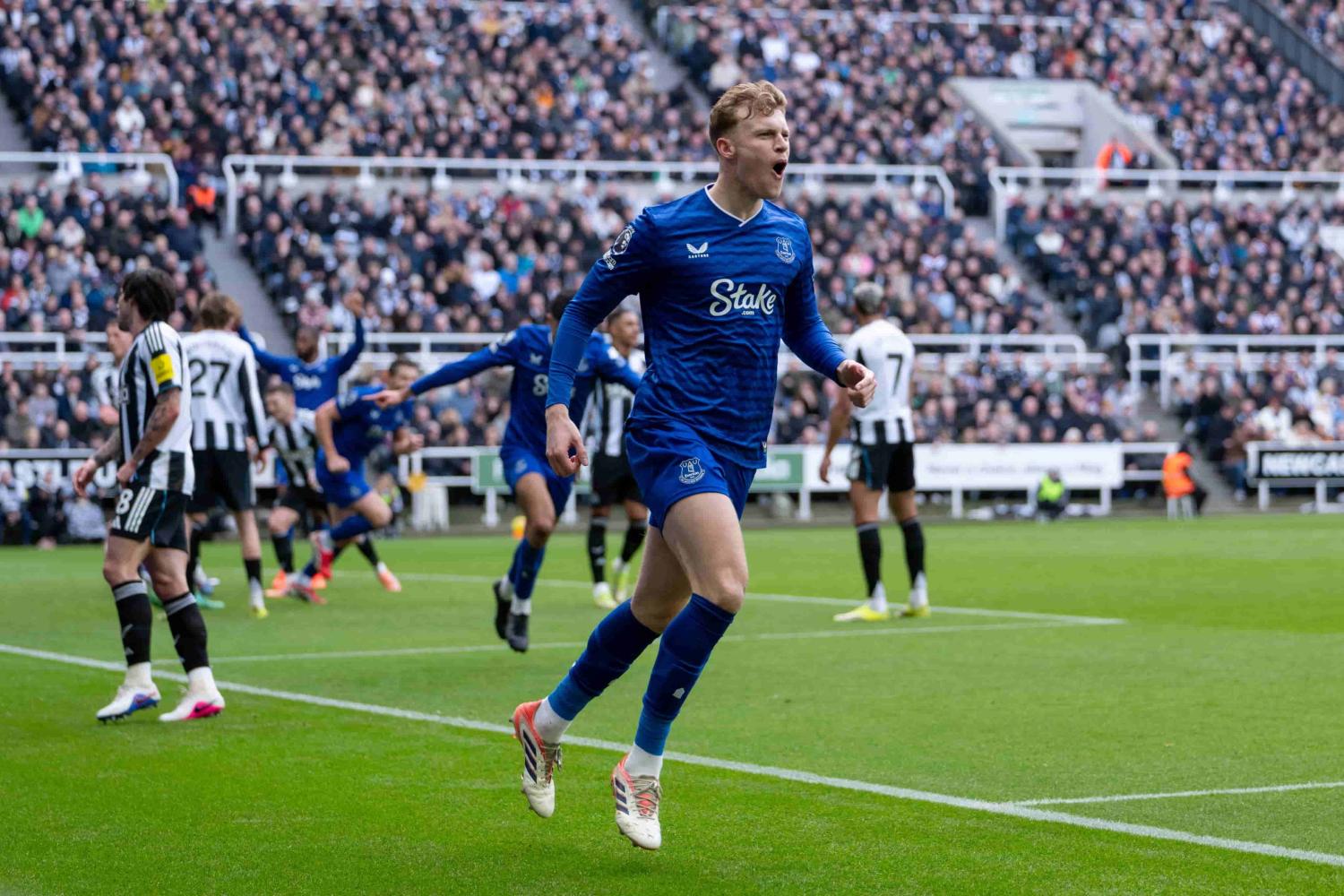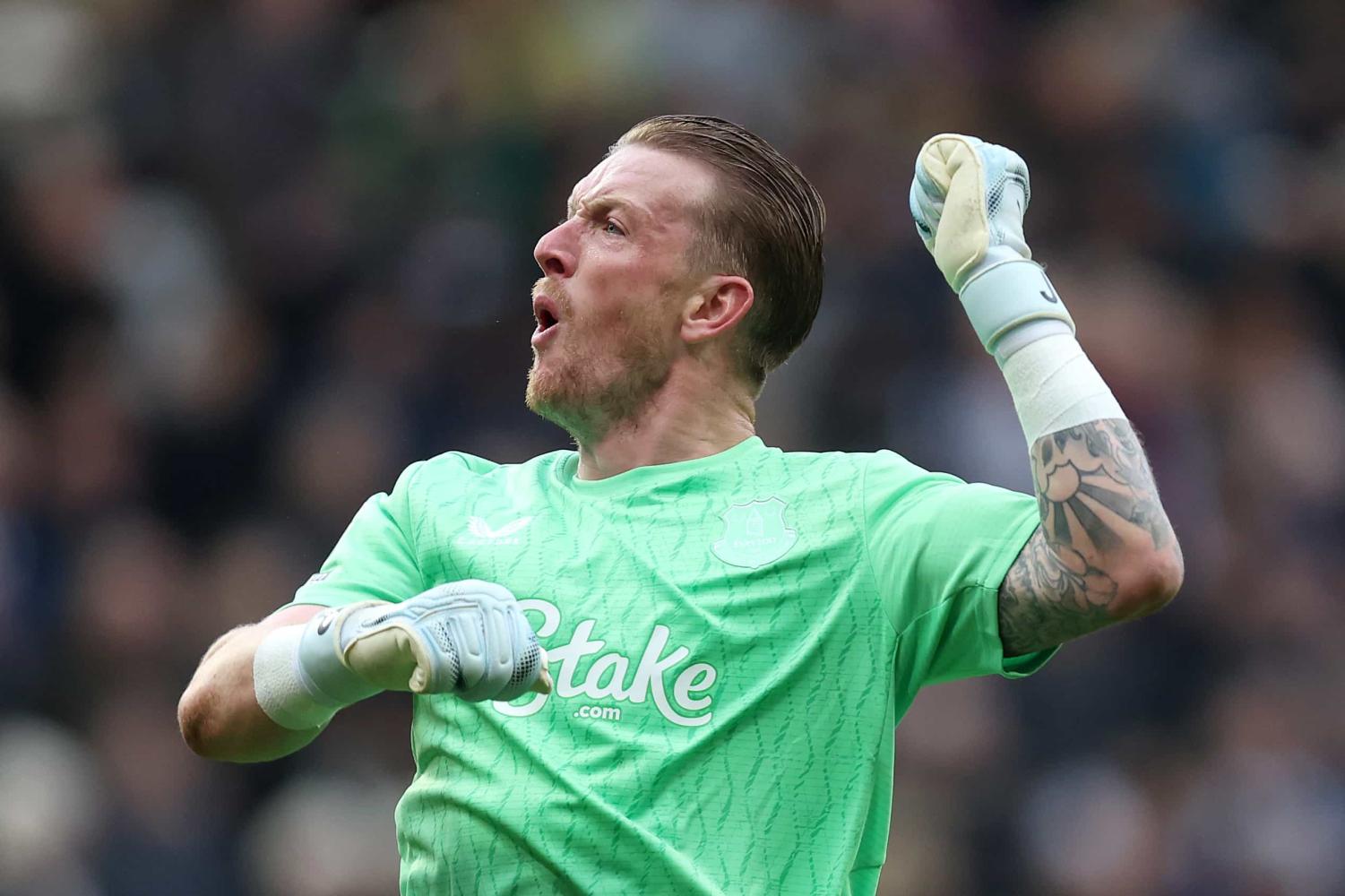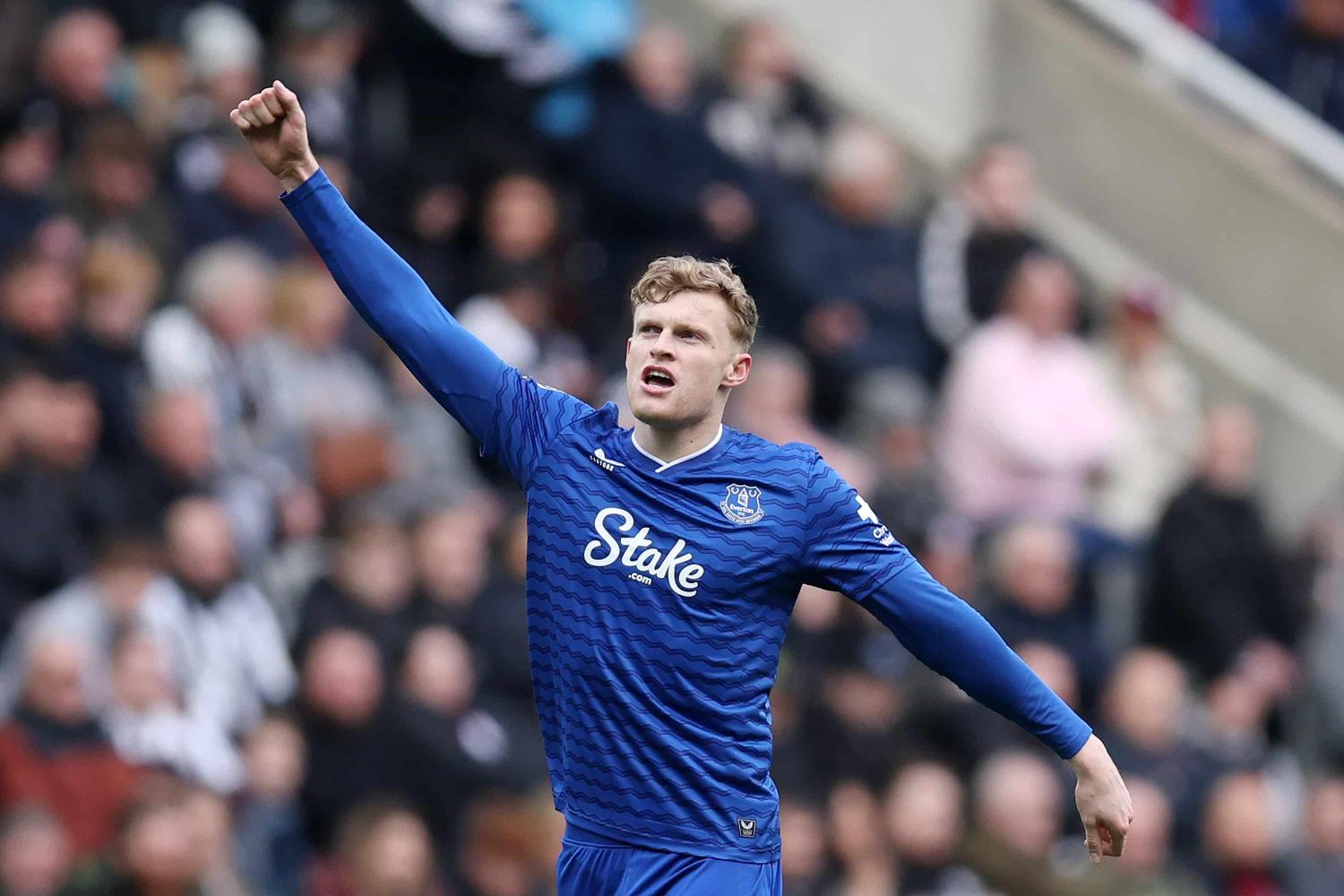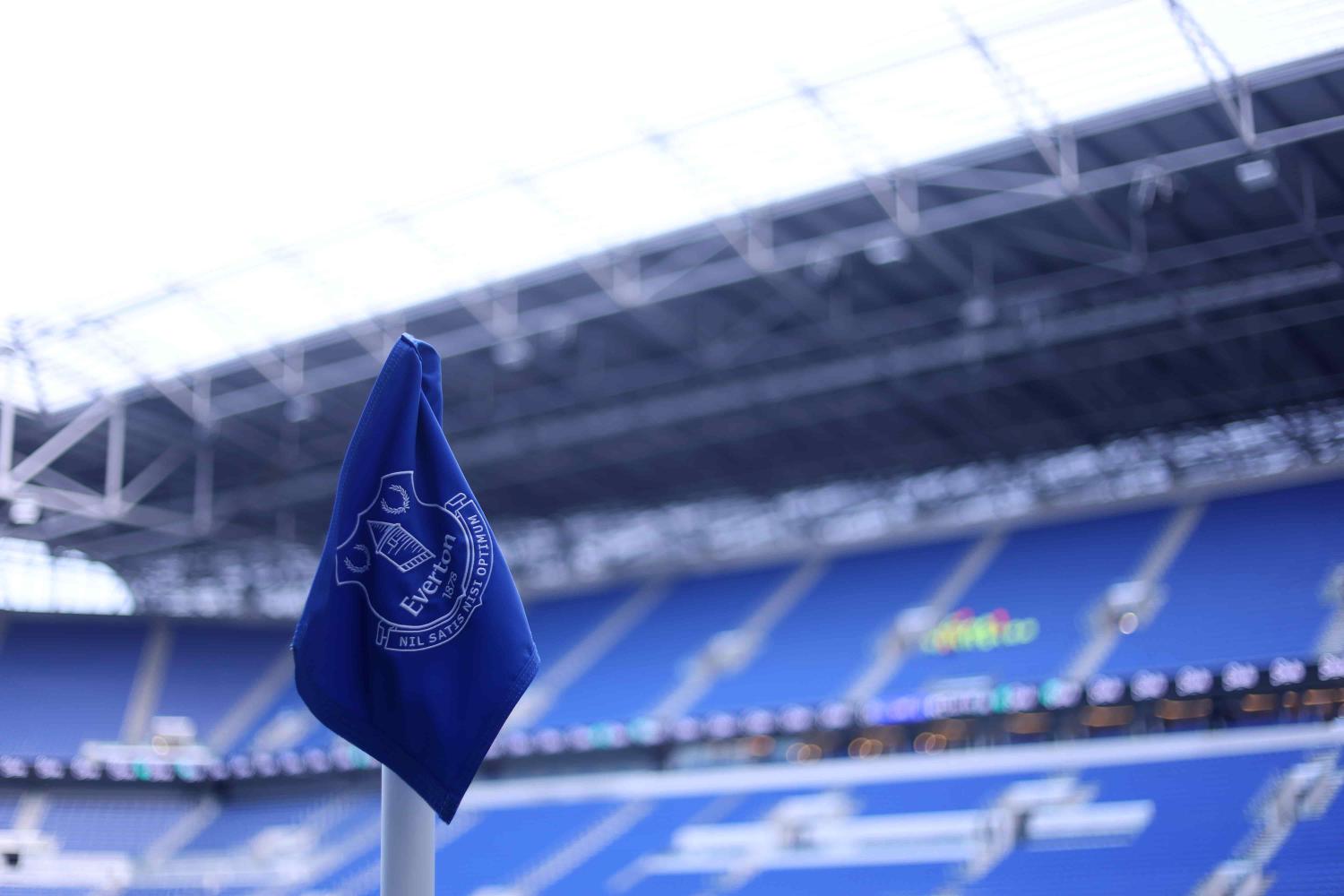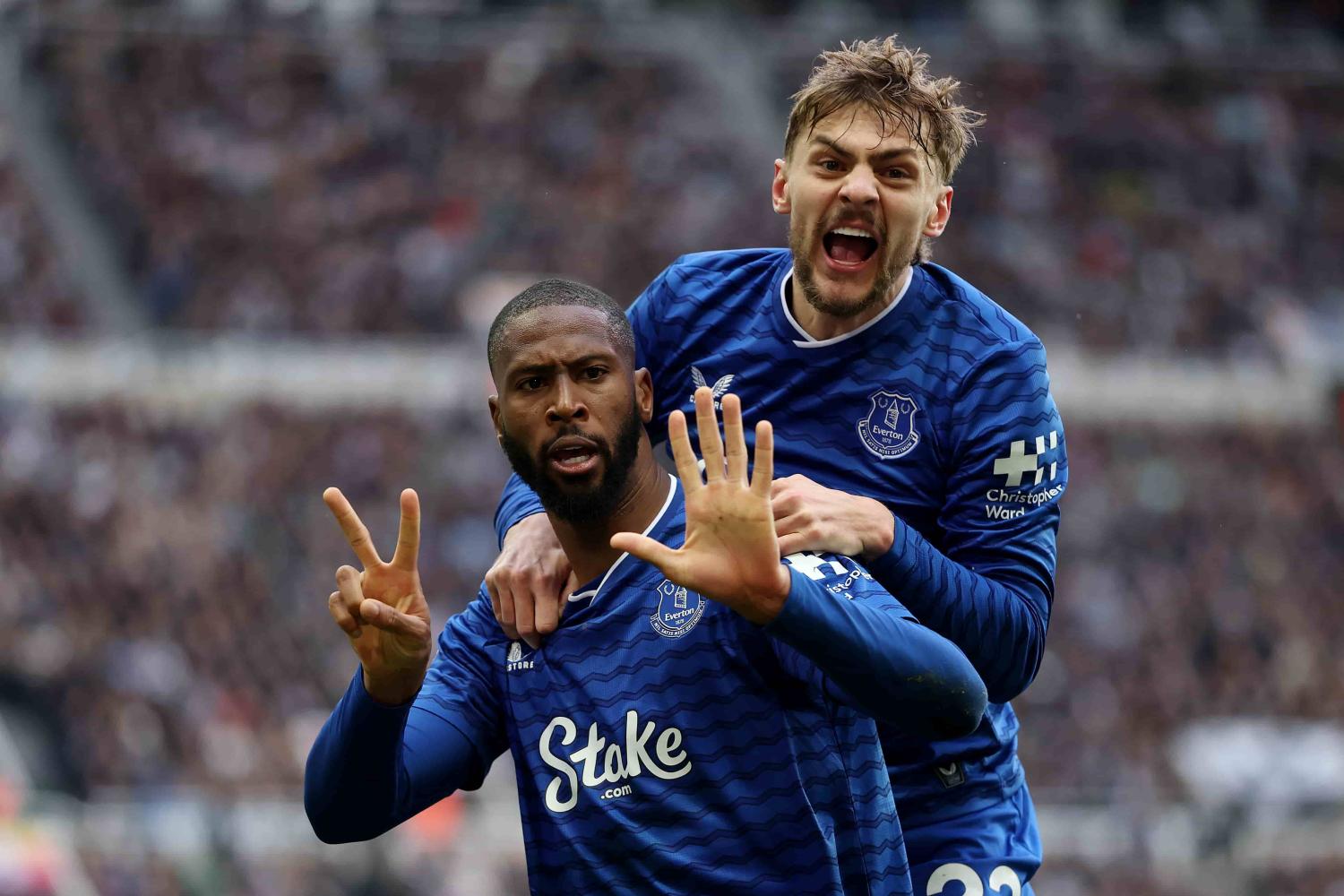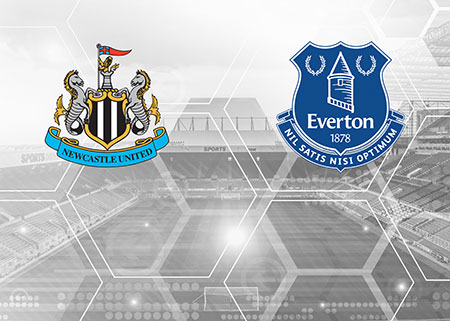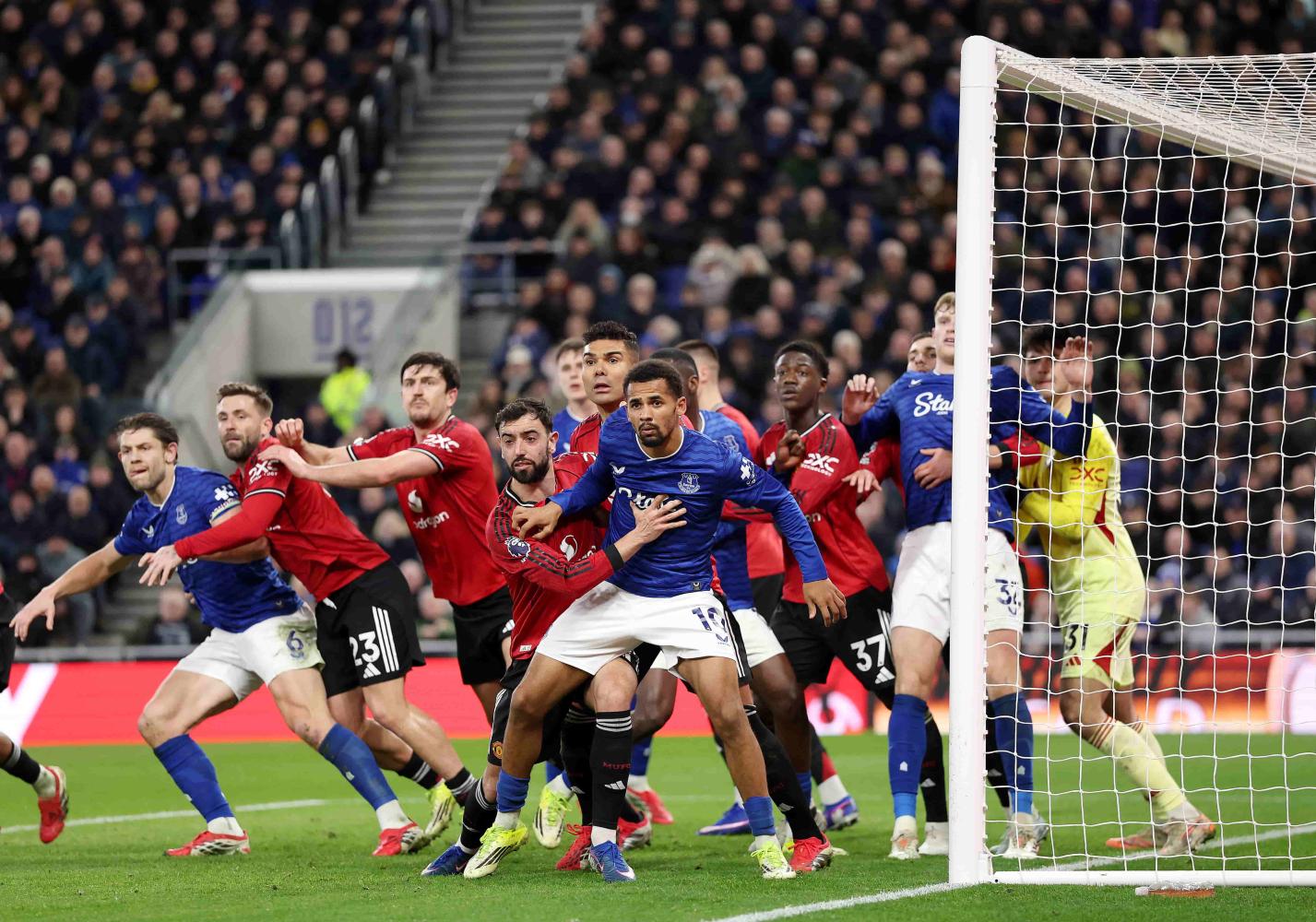|
The Rob Fox Column
The Reckoning
Welcome to the occupationLast Sunday we went to the Reebok stadium, put up a very
resilient display, restricting Bolton to 3 shots on target, and made the
most of the one clear cut chance that came our way. Yes, they had a lot
of shots off target but a lot of that was down to the way we defended,
ensuring they didn�t get clear sights at goal. Tactically, we were spot
on, the only downside being the players inability to retain possession for
long enough to give our overworked defence a breather, but then Bolton
are, like us, adept at pressing the ball and closing down space. All in
all, an excellent result, which I suspect will be put into perspective as
the season goes on and Bolton steamroller the majority of teams who visit
the Reebok this season. As I finish this, we have just been knocked out
of the Champions League. How much impact this result will have on our
long term future is open to debate, but many Evertonians are adamant that
the club has not done enough to build a squad to withstand the challenges
facing us this season. If you believe the club has performed poorly in
the transfer market this summer, then clearly somebody has to be
culpable. Once again, many Blues are divided on this � is it Kenwright,
Wyness or Moyes who are to blame, or all three? Second Guessing Our
lack of spending has re-ignited suspicions of, as some would describe it,
smoke and mirrors on behalf of Everton Football Club. Despite
Moyes�s and
Wyness�s insistence that it is has been the manager�s choice not to spend
all of the money available to him yet, many Blues feel let down and
believe that the reason Moyes isn�t spending is because he has little to
spend at the moment, especially now our Champions League fate has been
decided by Pierluigi Collina. The debate is pretty straightforward on
the message boards. Some Evertonians believe that Moyes calls the shots
and is simply building steadily and wisely, others that we have shown a
customary lack of ambition in not investing more heavily to capitalise on
our unexpected opportunity in the Champions League. Whilst there are
valid reasons for being cautious many Blues put forward a plausible case
for being bolder in the transfer market. To be fair, on tonight�s
evidence, to be overly critical of Moyes at the moment would seem
churlish. Whether a couple more signings in good time would have made the
crucial difference we will never know. Automatic for the people The
argument is that we need quality and we should simply pay the going rate
to get it. Fair comment, but if we had taken a few financial risks on
signings, we would still be competing with other teams who do the
same. Given that a Champions League place is the only real guarantee of a
significant return on the pitch, and we are simply one of around 8 or 9
teams with the same aspirations for next season, this is obviously a risky
policy. Tottenham fans seem to believe that Edgar Davids will pay for
himself in terms of increased merchandise sales. Perhaps, but if we had
signed him we would be largely tapping into our loyal fan base for this
extra income. A sudden proliferation of Everton shirts with DAVIDS on the
back would seem to vindicate this policy. In truth, the vast majority of
such people would have bought a shirt anyway, perhaps with DAVIES on the
back instead. As far as I am aware D�s are no more expensive than E�s.
Fables of the reconstruction The simple fact is the majority of
Evertonians already give a huge proportion of their disposable income to
the club anyway. So, yes, we may have seen an increase in sales of
merchandise, but perhaps not by as much as we would hope. Our worldwide
profile would not be significantly raised to suddenly attract hordes of
new Evertonians with cash to spend on merchandise and our existing fan
base is already being bled dry. Like it or not, a major part of any
CEO�s brief is to exploit the existing customer base to its full
potential. David Moyes has carefully nurtured an excellent team spirit
and he is a pragmatic man. When considering a player, I am certain that
his only considerations are the player�s value to the team and ability to
fit into our ethos. He is on the record as saying we are not ready for a
superstar, by which I think he means he is not interested in a showbiz
signing. We are about the team, not individuals and I think Moyes would
need an awful lot of convincing otherwise, and I doubt Wyness would try to
do so anyway. Any signings will be based on football considerations,
nothing else. Feeling Gravity�s Pull The entrepreneurial spirit,
and willingness to speculate to accumulate, has made some people very rich
and some hugely successful businesses have been built on this
approach. Conversely, it has also bankrupted many more. There is no
escaping the fact that a risk, no matter how well calculated, carries the
possibility of two opposing outcomes � success and failure. Whilst the
rewards of success are undoubtedly great, you must be willing to accept
the consequences of possible failure. The alternative approach to
developing a business is steady growth, increasing your market share and
gradually becoming a major player. This route is undoubtedly harder, and
there will inevitably be points when it becomes difficult, or even
impossible, to grow further within the market. At this point you can
accept your position, take increased risks or move into other markets. Can�t
get there from here In practice, bold entrepreneurs who take risks
tend to succeed in areas where there is a niche that nobody has
filled. In a congested market, it is more difficult to succeed with this
approach. Football clearly falls into the latter category. The business
of Everton Football Club can only grow by eating into existing
markets. Unfortunately there are only so many ways in which a football
club can progress. If all of this seems a bit dry, I apologise but my
point is this. There are few niches, or loopholes, or alternative markets
for Everton to exploit. Whilst it is accepted wisdom that a club�s
potential can be measured by their financial strength, there are only a
few avenues for clubs to explore in order to increase their revenue. We
have no choice but to work within the congested market we find ourselves
in, competing against every other club for the finite amount of money
available. Find the river About a year ago I wrote an article for
Toffeeweb called Fortress Goodison which looked in some depth at the ways
in which Everton can move forward and grow as a business. The formula is
fairly simple. The ultimate goal is success on the pitch and the more
money available to the manager will theoretically increase this
likelihood. The problems for all football clubs is generating this money,
and then finding the right man to spend it. The options for Everton, and
any club who has to work on a tight budget, are as follows. We can
attract greater investment into the club, increase our gate revenue,
increase sales through merchandising, increase our prize money through
success on the pitch, or branch out into other areas. Stand Fortress
Goodison focused on ways in which we could grow as a club, but the general
conclusion was that we find ourselves in something of a Catch-22
situation. In order to significantly increase our revenue streams we need
to invest in the infrastructure of the club to make a significant
difference. Of course, without increasing our revenue we lack the money
to invest in improving our infrastructure. Economies of scale dictate
that the more money you have the more you are able to make. Comparing our
revenue to the likes of Manchester United and Liverpool highlights our
problems. With Arsenal, already streets ahead of us, preparing to move to
Ashburton Grove, we are stuck at an antiquated stadium with few options
for improvement and no foreseeable opportunity of building a new
stadium. Talk about the Passion At present, Keith Wyness is
charged with increasing revenue, and the key areas in which he can make
quick progress are gate revenue and merchandise sales. The first problem
facing him is the nature of Everton�s fan base. We are still
predominantly supported by working class people who have a long tradition
as Evertonians. With limited incomes, there is only so much money the
club can squeeze out of us no matter what they do. A further
complication is the passionate nature of our support and our
protectiveness of our tradition. The slightly comical denouncement at the
AGM of Chris Samuelson for not knowing his history highlights this. Most
of us are torn between keeping our identity as a club and opening up to
embrace the game football has become. The culmination of such a dilemma
has already happened at the other end of the East Lancs with some
Manchester United fans, in actual fact a very small proportion of their
support, setting up an alternative FC United due to their feeling of
alienation by what their club has become. So far, they appear to have
done little, if any, damage to the Glazers. Shiny Happy People For
Evertonians, these are strange times. In many senses we believe that we
belong in the exalted company that Champions League football will bring,
yet we also feel like usurpers. We are aware that the game, and the
profile of the average supporter, has changed whilst we have stood still
for so long and now we feel slightly out of place where we used to
belong. The dress code has changed and we are still wearing the same old
clothes. All of this makes it difficult for the club to grow. Goodison
is our ground, yet loyal fans are being unceremoniously moved to make way
for the prawn sandwich brigade. Sadly this is a fact of life which we
will just have to get used to, uncomfortable as it may seem to some. The
game has changed beyond all recognition since we last won the league and
we have a lot of ground to make up. Half a world away At this
point it is worth comparing ourselves to the clubs we are hoping to
match. Manchester United and Liverpool may be our most hated rivals, but
in the eyes of the world they are the chosen ones, the glamorous
clubs. Worldwide they are, historically at least, the biggest and best
known English clubs without dispute. This has allowed both clubs to
survive long fallow periods without ever being too far away from the
top. Chelsea and Arsenal complete the glamour set for different
reasons. Arsenal have a sound board but the key for them was the
appointment of Arsene Wenger as manager. In Chelsea�s case, they took
huge risks that came close to crippling them, but were rescued by Roman
Abramovich, allowing them to attract a manager of the calibre of Jose
Mourinho. Clearly location was part of Abramovich�s decision, along with
the potential of the Chelsea Village project. Newcastle and Middlesbrough
are examples of other clubs who have come to the fore in the Sky era. World
Leader Pretend There are numerous reasons why each of these clubs has
grown whilst we have floundered. Some would contend that these clubs have
outperformed us off the pitch due to having more ambition. This is a
contentious issue as it implies that spending money equates with
ambition. Under Peter Johnson, we spent a fair bit of money until the
wheels fell off. Walter Smith spent a fair amount of money under Bill
Kenwright. But of course, it was remiss of Kenwright to spend money we
didn�t have. At the time, though, few accused him or Smith of lacking
ambition. Taking Middlesbrough as an example, they have spent big but
have clearly been bankrolled by an ambitious chairman. Or perhaps he is
just rich. The implication is that Everton�s board lacks ambition because
we are limiting our spending. What happens if you are really ambitious
but don�t have much money? Time after time Everton have been in
decline since 1987, you could reasonably even argue that the decline began
with the European ban in 1985. Initially this was due to Colin Harvey�s
failure to keep Everton at the pinnacle of football despite spending
considerably. Since then we have periodically splashed the cash to no
avail. The fact is whenever we have supposedly shown ambition by spending
on players it is has failed due to the lack of a long term strategic
plan. When Bill Kenwright scraped together enough to buy the club in
1999, he inherited many problems. Goodison and Bellefield had long since
been surpassed as state of the art and received very little investment in
the meantime. We had a struggling squad and little money to strengthen
it. Oh, and we were also in debt. You are the everything Whilst
Kenwright has undoubtedly made numerous high profile errors, the task he
inherited should not be underestimated. The infrastructure of the club
required an entire overhaul whilst simultaneously stopping the club from
leaking money. In addition, we also had to attempt to improve the
squad. The debate as to whether Kenwright is the right man for the job
will rumble on and others have more facts to go on than I do, but in the
here and now he is the man in charge. I would contend that nobody could
reasonably expect him to be able to manage the team so he employs somebody
to do it for him. Similarly, the day to day running of a football
business is a specialist job and as such requires a specialist. Keith
Wyness and David Moyes are the men filling these positions and it is their
performance that the board�s tenure will ultimately be judged upon. Pretty
persuasion Wyness�s priority is clearly to increase revenue to support
David Moyes. Whilst Moyes has been in the job long enough to have
established the basis of his long term strategy, in many respects Wyness�s tenure is largely in its infancy and is difficult to judge yet. So far he
has worked to increase revenue through familiar means. Earlier I
highlighted the methods of attracting revenue through gate money,
merchandising and other areas such as credit cards and mortgages, areas
which the club has moved into. The problem is that this is primarily
tapping into the existing fan base, who of course have a limited
income. The key is to attract new support, hence the attempt to exploit
our partnership with Chang. Maps and legends In many respects,
I�m sure David Moyes would have preferred a different pre-season, and it
is widely accepted that the Thailand tour had a huge commercial
bias. Worldwide, there is phenomenal interest in football and these
markets are ripe to be tapped into. Quite how much revenue can really be
generated this way is arguable, but for a club like Everton who don�t have
the worldwide profile of other clubs, this is necessary groundwork in
promoting the Everton brand. Manchester United make huge amounts of money
worldwide, a fair proportion in this country, from people who may never
visit Old Trafford. Wyness is attempting to tap into markets that are
fluid, such as Thailand, but overall our profile is still negligible
worldwide compared to many clubs. Losing my religion In many
respects this is the crux of the matter for Everton. Going back to ways
of increasing revenue, the two areas I have not focused on are attracting
investment and success on the pitch. In many respects these go hand in
hand. Theoretically, our increased profile due to reaching the qualifying
rounds of the Champions League represented a great opportunity to pull up
a chair at the top table. Of course, it�s not as simple as that. Colm
Kavanagh, amongst others, has recently delved into the murky waters of
professional football, 2005. Allegations of corruption are rife, and
mistrust abounds. The fact that so many of us were expecting Liverpool
and Everton to be drawn together and are prepared to believe that the
suspicion aroused, and suggested by David Moyes the day before the draw,
caused them to change tack but still ensure we had as difficult a draw as
possible highlights this. Pierlugi Collina�s performance tonight has
compounded this suspicion, although my rational self believes he was
brought in as a result of the reaction to our supposedly over-physical
approach in the first leg. Let�s be kind, call him over fussy, and move
on. Begin the begin Whatever you believe, there is little doubt
that the G14 clubs carry huge influence in the game. It is also clear
that we do not have a profile that is likely to see us being invited to
join in the near future. The odds are hugely stacked against us being
able to gatecrash the party. In many respects, Villarreal are a perfect
example of the way forward for Everton. Let�s be honest, most of us
knew little about our Spanish opponents before the draw was made. Having
been a middle of the road Spanish team, in the past few years they have
become a major force in La Liga and have two good Uefa Cup campaigns
behind them. I am still hopeful we can get the result in Spain, but it is
clear that they have gradually built up to this opportunity and are, at
present anyway, seemingly better equipped than us to make an impact in the
Champions League. Even if we had managed to beat them, they will probably
be competing for a place again next season in any case. For us, the
question is whether this is a once in a lifetime chance or whether we can
qualify again in the future. The general feeling amongst Evertonians
seems to be that qualifying again will be very difficult. Comparing our
transfer dealings this summer to those of our rivals is the crux of where
many Blues have their doubts about are chances, and ambitions, of
repeating last season�s feat. Perfect circle This brings us back
to where we came in. Just how ambitious are Everton Football Club? There
is no question that we have invested less in the team than most of our
rivals over the last few years. In
http://www.toffeeweb.com/season/05-06/comment/rob/01-expects.asp I
compared our present squad to the squad David Moyes inherited and overall
the income and expenditure from transfers pretty much evens out over the 3
years of his tenure. In comparison, the likes of Newcastle, Tottenham and
Middlesbrough have consistently spent heavily. It is only since the sale
of Wayne Rooney that we have begun to spend big. So, whilst we have spent
more on transfers this summer than those 3, if not on wages, it is largely
off the back of the Rooney money. Tottenham, for example, have brought in
the likes of Defoe, Keane, Kanout�, Davis, Reid, Dawson and �8m worth of
Dean Richards for big money on a consistent basis. Not all have
succeeded, but they have been able to continue to spend regardless. Star
69 In Fortress Goodison, I traced our downward spiral since 1985,
which can be partly attributed to mismanagement both on and off the
pitch. Successive managers have invested money in the squad that has
ultimately been wasted. The obvious culprits are the likes of Bilic and
Williamson, but injuries happen. On the other hand, the likes of Nyarko
are simply down to poor recruitment. I would argue that the likes of
Bakayoko should not be classed as a huge failure because we recouped our
money, whereas the likes of Cottee and Nevin, who don�t forget were signed
to help us regain the title, were failures because they didn�t achieve
what was expected of them in the long term and were sold for much less
than they were bought. But, that�s football, and all transfers carry a
risk. In Moyes we have a manager who always attempts to minimise that
risk. Bang and blame Off the pitch, we have failed to arrest the
slide in business terms for many years. The major investments have been
the megastore and the Park End stand, both under Johnson, and although I
would assume they have paid for themselves and made a profit they are
drops in the ocean as we have fallen further behind our competitors. In
terms of team investment, it has been boom and bust. Colin Harvey, Mike
Walker, Joe Royle and Walter Smith were all given cash to spend, but
ultimately weren�t able to attain, or in Royle�s case sustain, success on
the pitch. Consequently, each period of spending has been followed by a
period of cost cutting, for example with Howard Kendall having to balance
the books after Harvey�s sacking. Low Under Peter Johnson, we did
continue to spend, but again lack of success on the pitch meant we
couldn�t sustain it, culminating in the sale of Duncan Ferguson. Fast
forward, and Walter Smith again found his team building plans hampered by
ultimately having to sell the team he bought due to the collapse of the
NTL deal. To most independent observers Smith�s reign, as Walter was
always ready to remind us all, was a period of cutting corners, working on
a shoestring, and selling the family silver to keep afloat. When Bill
Kenwright took over the club he inherited a debt, poor facilities and huge
expectation. He also readily admitted that he had little money left over
to invest in the infrastructure of the club. Since then, our fortunes
have largely rested on the shoulders of Walter Smith and David
Moyes. Bill Kenwright stored plenty of faith in Walter Smith during his
tenure, despite Smith�s constant references to lack of money. To be fair,
at the time, most Blues seemed understanding of both Smith�s, and
Kenwright�s, plight. Try not to breathe There is no doubt that
Bill Kenwright walked into a very difficult scenario. Whilst he has
undoubtedly made many mistakes along the way, most Evertonians point to
the growth in our debt as the major factor of his reign. The Smith years
were also synonymous with the dour and remote Michael Dunford, who
seemingly became Chief Executive by default. By the time Trevor Birch
arrived, in the midst of the Rooney saga, it was clear that major surgery
was required to repair the club�s financial problems. The problem with
debt is that it is extremely easy to continue to compound the problem and
extremely difficult to turn it around, especially in a highly competitive
market where your competitors are investing in their business whilst you
are treading, or drowning in, water. Drive The identities of
our direct competitors have fluctuated since the 1980s. A general
barometer of our standing is the clubs we are bracketed with in the
transfer market. Since the signing of Tony Cottee we have never really
been bracketed with the mythical �Big 5�. For a while it was Leeds and
Villa, fellow big clubs who have underachieved, then it was the likes of
Southampton, then whoever were favourites for relegation. Finally, we are
being bracketed with the second tier of the Premiership below the top 3
once again. Supporters have been forced to adapt, and but for fate we may
well be in Sheffield Wednesday�s position of being bracketed with the
likes of Stoke and Burnley, or worse. Under Smith and Dunford we stayed
afloat, just. We had come to, reluctantly, accept survival and maybe a
cup run as a decent season. A top half finish was a barely uttered hope,
a mythical stadium our long term salvation. Wayne Rooney and David Moyes
changed all that. Under Smith, Rooney would have undoubtedly been
expected to be sacrificed as a cash cow. Under Moyes, with his drive and
desire, we began to believe again. Suddenly, Kenwright was under pressure
to respond by ensuring we kept Rooney and Moyes by supporting the
manager�s plans with hard cash. It is easy to paint the picture of
Kenwright as being quite happy to see the club just tick along, but the
fact is it is he who appointed the clearly ambitious and driven Moyes. Exhuming
McCarthy I have little doubt that Bill Kenwright is a passionate
Evertonian. I also have little doubt he is sometimes economical with the
truth. Quite how economical at times I have no real idea. Whether his
motives now are self preservation or a desire to make Everton great again
are also open to debate. At times, the persecution of the man in some
quarters resembles a witch hunt, and again the motives of his biggest
critics are also open to debate. Sometimes the criticism of Kenwright
seems justified, at other times harsh. It is the same with David Moyes
and Keith Wyness. You might as well add Alessandro Pistone and James
Beattie to the list. That comes with the territory. The reaction of
supporters to our win over Bolton highlights that some people will always
be cynical and negative, but it is too easy to simply stereotype all of
Kenwright�s critics as miserablists who will never be happy. Rooney, of
course, was sold, and the debate as to the reasons why still rumbles on. King
of comedy As an Evertonian, I have no inside brief, only what I see
on the pitch, hear from those at the club and read in the media. Others
who have had closer dealings with the club�s hierarchy will be better
informed to make a judgement, but that does not necessarily mean they will
make the right one. Very little in life is clear cut. Bill Kenwright
undoubtedly has failings, but on the surface he seems preferable to the
majority of autonomous chairmen such as Doug Ellis and Rupert Lowe, and
certainly preferable to the odious Freddy Shepherd. On the other hand, it
is hard to be critical of Steve Gibson, and it is hard to dislike Simon
Jordan. Gibson of course continues to bankroll his club whilst it could
be argued that Jordan�s principles got his side relegated. Or perhaps
Steve Gibson is simply a lot richer, or less principled, than Simon
Jordan. None of which, of course, helps Everton. Last year the strain on
Kenwright was clear to see, and the fact remains that the better Everton
do on the pitch the easier his life is. The lack of fuss about the
disappearance of the Fortress Sports Fund at present is testament to
this. Let me in All of this does highlight the difficulties in
making a fair comparison between our board, which is effectively
Kenwright, and other clubs. Newcastle and Tottenham have a seemingly
never ending supply of money and seem to be riding the stock market wave
well enough. It is yet, despite annual promises and declarations, to
bring either club any tangible success. Tottenham are many people�s tip
to �do an Everton� this year and break into the top 6, or even top 4. If
they do it will be as much down to finally having a decent manager as
anything else. If they don�t it could be argued that it is because the
manager isn�t that good after all. That�s how it goes, and the margins
are very fine. Catapult Newcastle finished 4th a few
years back and continued to spend heavily to capitalise on this
opportunity to challenge the top 3. Last season they finished 14th
I won�t go into the huge amounts the kopites have wasted, sorry spent, in
the last few years. But of course they spawned, sorry won, the Champions
League so that�s alright then. How much it had to do with their manager�s
experience in European football depends on who you ask. Charlton are
most people�s choice of the epitome of a well run, progressive club. They
have got where they are by having a decent manager, growing steadily by
using sound business practices and not over stretching themselves. Oh,
and one other precious commodity � patience. This is something many
Evertonians seem to be short of. Sweetness follows Our recent
relative success on the field has served to only increase this impatience,
putting more pressure on the board to deliver quickly. A taste of the
Champions League, no matter how bitter in the end, has made us even
hungrier. Having appointed Keith Wyness, Kenwright has taken more of a
background role and is presumably happy with his current C.E.O. It is
difficult to judge Wyness�s performance as we are only really beginning to
make the changes needed to increase revenue considerably. Going back to
our options mentioned earlier, he has made the only real moves available
to him at present in terms of increasing gate receipts, short of building
a new stadium. Whether he has gone too far will become clear in time. In
a business sense if gate revenue increases by a decent proportion he will
be vindicated. Obviously he has risked alienating some Blues, but he will
be banking on our loyalty to the brand - horrible word, but that�s
football in 2005 - and hoping that continued success on the pitch will
sweeten the medicine. Seven Chinese Brothers Similarly, he is
striving to increase merchandise sales from existing fans whilst
attempting to attract new supporters. In this fickle world, success on
the pitch will always lead to some converts from other teams who may go
out and buy a shirt, but are unlikely to go on to buy season
tickets. The real areas where new fans can be attracted are of course
in emerging markets such as Thailand and China. Whilst it is questionable
as to how much revenue can genuinely be attracted this way, from a
football sense the implications of potentially recruiting young
footballers from such countries is interesting, but again it is hard to
judge how effective this can ultimately prove. Strange currencies This
leaves two other ways forward � investment in the club and success on the
field. Ideally, the first would lead to the second. In fairness, the
club is probably more stable off the pitch now than it has been for a long
time, and if Wyness is to believed we are now genuinely able to move
forward, if tentatively. Obviously a lot of this is down to the money
generated by selling Rooney and our greater success on the pitch under
Moyes. Some Blues believe Kenwright�s main objective these days is to
cling on to power at all costs, like a despot in some tin pot
regime. Allegedly he, and he alone, is the reason why there has been no
major investment in Everton Football Club. This implies that there are
wealthy investors ready to pour money into our coffers if Kenwright is out
of the way. Really this throws up more questions than answers, and is the
most troubling aspect of the whole Kenwright debate. Man on the moon There
are only two legitimate reasons I can see why anybody would invest in a
football club. One is to make money, the other is to bring a club
success. The only other possible reason I can honestly see is to
legitimise criminality � i.e. money laundering. Quite which category
investors in other clubs fall into we can only surmise. Are some clubs a
rich man�s hobby or something more sinister? It is probably best to
sidestep the Fortress Sports Fund at this juncture. At Everton we have
the archetypal businessman trying to make a profit in Paul Gregg and the
supporter made good and desperate to see his side relive former glories in
Bill Kenwright. Whether that is a fair assessment I don�t know � other
seem pretty certain in their views on this. Whatever the truth, they are
the here and now. The question is, where are these potential investors?
More pertinently, who are they? Are they Evertonians such as Lord
Grantchester or mysterious businessman more akin to Lord Lucan? I
Believe It is widely accepted that it is very hard to legitimately
make money through investment in all but a select few clubs. It seems
clear that directors, as well as agents and even managers, at some clubs
have made considerable money over the years by collecting payoffs during
transfers. Nice work if you can get it. It seems hard to imagine a
legitimate, honourable, successful businessman buying into Everton with a
view to make a lot of money by making the business a success, unless they
had a vested interest, such as Bill Kenwright. In other words, a genuine
supporter. It�s the end of the world as we know it (and I feel
fine) If such a person, desperate to invest serious money in the club
he or she loves, exists they must be extremely frustrated by now. If such
a person believes that Bill Kenwright can�t take the club forward
financially on his own, I can�t understand why they would not have spoken
up by now. If Bill was co-operative in negotiating a takeover, or even in
buying a significant shareholding, fine. If, on the other hand, Bill
was distinctly uncooperative then surely, as Steve Morgan did with the
kopites, such a person would have openly declared their intentions by
now. Obviously, this might herald more negative publicity, but surely
that would be a risk you would have to take. Let�s be honest, rumours of
rich Evertonians wanting to invest have been circulating for a few years
now. I can�t believe they would still be patiently waiting for Bill to
make his mind up, unless they were not as keen as we are sometimes led to
believe. Letter never sent The Fortress Fund remains unexplained,
and it is hard not to be suspicious of Kenwright over this. It may
genuinely be that Everton have been misled, or it may be a ploy by Bill to
deter investors. If so, surely if such a person, be it Paul Gregg or
anybody else were to speak out and tell supporters exactly what was on the
table it would be extremely difficult for Bill to shake off this
time. For some reason, this has yet to happen which is perhaps as
mysterious as the Fortress Fund itself. So, in the apparent absence of
benevolent investors, or a billionaire wanting to launder some dirty
money, we are left to pursue other forms of investment such as
sponsorships, or business partnerships, as they are now called. Whilst
the Chang deal is reportedly the best sponsorship deal we have ever had it
is the tip of the iceberg. However, we return to the familiar
catch-22. We need to raise our profile to attract major business
partners, but of course this is difficult to do without investment in the
first place. Monty got a raw deal Which brings us to the last
possible way of increasing revenue � success on the pitch. Qualifying for
the Champions League would immediately raise our profile, but not to the
extent some might hope. There are many teams across Europe who regularly
play in the Champions League but who have not become major players as a
result. Qualifying for the group stages
then finishing bottom would have as many negative connotations as positive
ones. We would soon be forgotten, or remembered only as whipping
boys. To draw a parallel, what are your thoughts on Barnsley? A lower
league team who had one season of embarrassing themselves in the
Premiership? Me too. It could be argued that splashing the cash this
summer would have given us a chance of doing well, but I am far from
convinced. Edgar Davids is a signing who would have raised our profile,
but only slightly. People are certainly taking a closer interest in
Tottenham at the moment, but that will be short lived if they don�t
maintain their early season form. They were in a similar position when
Jurgen Klinsmann was there � a superstar amidst a talented young
squad. Look what the Dogs of War did to them. Good advice There
are absolutely no guarantees or safeguards in football at any level, least
of all in the Premiership or European football. The entrepreneurial, high
risk strategy carries far more chance of failure than success, and in a
congested market steady growth is a far more prudent strategy. We have
gatecrashed the top 4 and the Champions League quite spectacularly. David
Moyes, and apparently also Keith Wyness, are seemingly more interested in
building solid foundations to work from using sound business
practices. The jury may be out on Keith Wyness, but the fact is the
manager is currently being given reasonable financial support for team
building. Up It would be easy to go for broke, but to me that
would be a sign of desperation. By not doing so, Wyness and Moyes
seemingly both have the confidence in themselves to do their jobs well
over a period of time. When push comes to shove, Wyness�s job is simply to
run a solid business which makes a profit, some of which needs to be
reinvested in developing the infrastructure of the club. Goodison,
Bellefield and the academies all need to be developed or replaced, which
are very costly projects to undertake. In the meantime, we need to
generate a surplus for David Moyes�s transfer funds either through the
business side of the club or increased prize money through league placing
and progress in domestic and European competition, ideally from both
sources. This steady growth of the business and the team would in turn
raise our profile gradually, and more importantly over a longer period of
time, to attract higher profile business partners in return. Green Hopefully,
in a few years we will have a huge shirt deal with Nike, be sponsored by
Microsoft and be moving into the McDonald�s Goodison on the Waterfront
Stadium. Depending on your human rights viewpoint, that may sound more
like a nightmare, but that is the reality of the situation football is
in. It is a big business, dominated by a few, extremely ruthless
brands. Success and exploitation go hand in hand. At present we are
jumping up and down outside the window hoping to be noticed, but of course
most of us would never admit that. It might make us feel dirty and
ashamed to become corporate whores, but that is the only way to be
successful these days. This is the world David Moyes is determined to
succeed in and there is no doubt it will be a gradual process. Moyes is
gradually being allowed to bring quality players in, but make no mistake
we are still taking baby steps along the road to taking our place amongst
the elite. The wake up bomb The harsh reality is we may never get
there, but unless Abramovich wants to try another shade of Blue there is
no magic wand. Bill Kenwright may not be perfect, but there is always a
danger in getting what you wish for and there are far worse alternatives
to him. Despite past errors, we seem to be gradually moving in the right
direction, but it is early days. What is certain is that Evertonians
will always have high expectations and Kenwright knows there is no
avoiding that. Moyes seems to have embraced it, and recent assurances
over chasing top quality players is evidence of this. Whether this is
simply a message of reassurance to the fans, a warning to his existing
players that they can�t rest on their laurels, or brinkmanship with
selling clubs I don�t know. These Days What I do know is that,
regardless of tonight�s result, the heat is on and the club is under
pressure to deliver. So far, Moyes and Wyness seem to have faith in
themselves to see the job through properly. Let�s hope they are as good
as their word, and let�s hope we have the patience to wait for them to
reach their destination. Overall, Evertonians are split not so much as to
whether the glass is half empty or half full. Most are more concerned as
to whether the tap is dripping slowly in or whether there is a hole in the
bottom. Others are probably just happy if there is no Chang in the glass,
but that�s another story. I suppose a business partnership with Stella
Artois is too much to ask. Whatever your view, tonight�s performance in
the CHAMPIONS LEAGUE is something positive, as is the news of more
signings in the pipeline. Some may say it�s a pipedream, but I�m not
convinced the CHAMPIONS LEAGUE has seen the back of us for good. Just one
last time, just indulge me, that�s the CHAMPIONS LEAGUE I�m talking
about. I�m not sure too many are laughing at us anymore. Rob Fox
|

